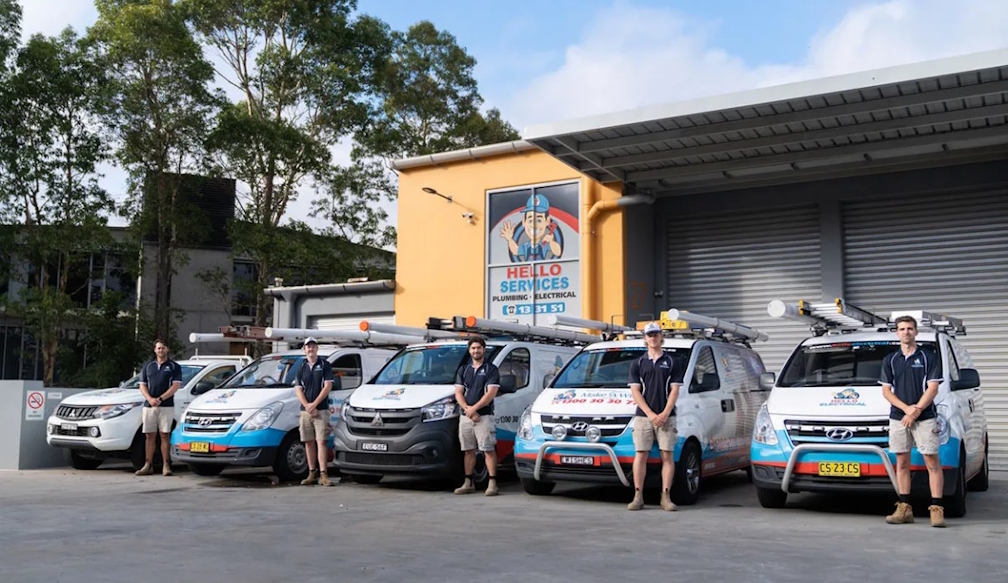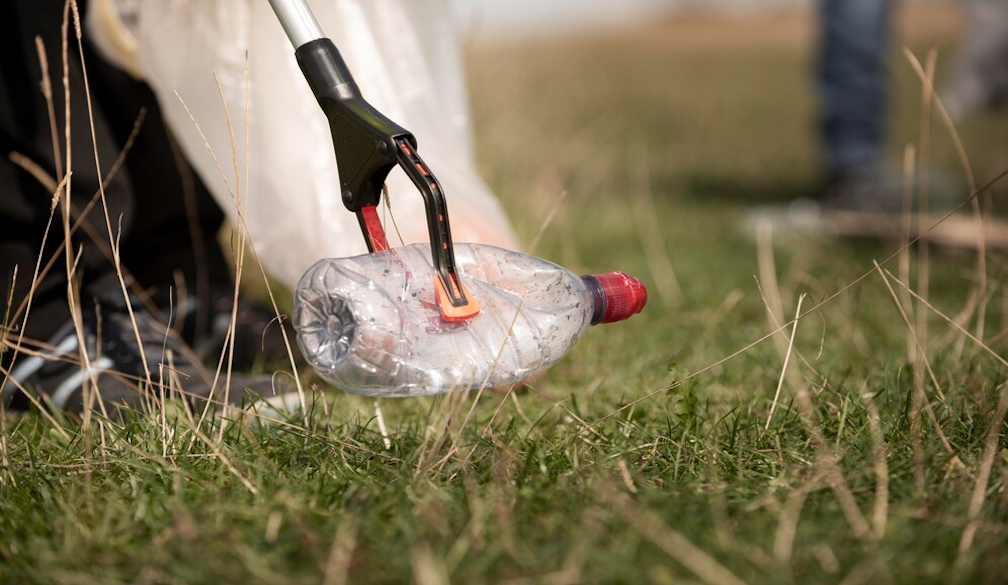Why Mining Contractors Can't Skip Liability Insurance

The mining industry presents some of the most substantial liability exposures across any commercial sector. From underground operations to surface extraction projects, contractors face potential claims that can reach staggering financial proportions. Whilst some business expenses might be negotiable, comprehensive insurance for mining contractors represents a fundamental necessity rather than an optional consideration. Understanding why liability coverage proves non-negotiable requires examining the unique risks contractors encounter and the devastating consequences of operating without adequate protection.
The Magnitude of Mining Industry Liabilities
Mining contractors operate in environments where a single incident can trigger cascading financial consequences. Heavy machinery weighing tonnes, excavations extending hundreds of metres, and proximity to valuable infrastructure create scenarios where third-party property damage claims can quickly escalate into millions. The physical scale of mining operations means that when something goes wrong, the resulting damage rarely remains contained or minimal.
Environmental incidents exemplify the severe liability exposure contractors face. Ground disturbance, water contamination, or chemical releases can affect surrounding properties, waterways, and ecosystems. Remediation costs for environmental damage frequently exceed initial damage estimates as the full extent of contamination emerges over time. Regulatory authorities increasingly hold contractors jointly liable with mining companies for environmental breaches, eliminating the assumption that project owners bear sole responsibility.
Third-party injury claims present another substantial liability dimension. Mining sites attract various stakeholders—from delivery drivers and site visitors to neighbouring property owners and members of the public. When individuals sustain injuries on or near mining operations, contractors may face claims regardless of whether the injured party had legitimate access to the site. Legal precedents demonstrate that duty of care obligations extend beyond direct employees to encompass anyone potentially affected by mining activities.
Contractual Requirements Drive Insurance Mandates
Major mining companies universally require contractors to maintain specified liability insurance before commencing work. These contractual stipulations exist for sound commercial reasons. Mining operators recognise that their own exposure to claims increases substantially when working with uninsured contractors, as claimants typically pursue all parties with potential liability, including project owners who engaged inadequately insured contractors.
Contract terms typically specify minimum coverage limits, often requiring public liability protection of several million pounds alongside additional policy types. Professional indemnity requirements apply to contractors providing specialist services such as geological consulting, engineering design, or surveying. Contract works insurance frequently appears as a mandatory requirement, protecting all parties against damage to construction elements throughout project lifecycles.
Insurance certificates must demonstrate current coverage before contractors receive site access. This verification process protects mining companies from engaging contractors who might create substantial financial exposure through inadequate risk transfer arrangements. Contracts commonly include provisions allowing mining companies to terminate agreements immediately if contractors fail to maintain required insurance throughout project duration.
Financial Consequences of Inadequate Coverage
Operating without appropriate liability insurance exposes contractors to financial devastation from single incidents. A machinery accident causing serious injury to a site visitor could generate claims exceeding hundreds of thousands in medical expenses, loss of income, and compensation for permanent disability. Without insurance, contractors must fund legal defence costs and any resulting settlements or judgements from business assets and personal resources.
Environmental liability claims demonstrate particularly severe financial implications. Contamination incidents requiring soil remediation, groundwater treatment, or ecosystem restoration can demand expenditures reaching into millions. The extended timeframes for environmental remediation—sometimes spanning years—compound financial pressure as ongoing costs accumulate whilst contractors attempt to maintain business operations.
Legal defence costs alone can prove financially crippling even when claims ultimately prove unfounded. Defending against liability allegations requires engaging specialist solicitors and expert witnesses, with legal fees accumulating rapidly as cases progress through investigation, negotiation, and potential litigation. Contractors without trade insurance must fund these defence costs entirely from business cash flow, creating severe operational constraints.
Reputation Damage Beyond Financial Impact
The absence of adequate liability coverage damages contractor reputations within the mining industry. Word travels quickly through mining networks when contractors lack proper insurance, as this signals either financial instability or poor risk management practices. Mining companies maintain preferred contractor lists, and uninsured operators rarely receive consideration for future projects regardless of technical capabilities.
Insurance coverage demonstrates professional credibility. Contractors who invest in comprehensive protection signal their commitment to responsible business practices and their capacity to honour obligations should incidents occur. This professional standing proves particularly valuable in competitive tendering situations where multiple qualified contractors compete for contracts.
Reputation damage intensifies exponentially if an uninsured contractor becomes involved in a serious incident. Industry associations, professional networks, and informal communication channels ensure that contractors who fail to meet their obligations after causing damage face long-term commercial consequences. Rebuilding industry standing after such reputation damage proves extraordinarily difficult, with many contractors finding themselves effectively excluded from future mining sector opportunities.
Regulatory and Legal Obligations
Whilst public liability insurance doesn't represent a universal legal requirement, various regulations create effective mandates for mining contractors. Workplace health and safety legislation imposes substantial obligations on contractors regarding third-party safety, with significant penalties for breaches. Demonstrating adequate insurance coverage often features prominently in regulatory compliance assessments.
Environmental protection legislation creates additional obligations that intersect with insurance requirements. Contractors disturbing ground, managing waste materials, or operating near waterways face regulatory requirements to demonstrate financial capacity to address potential environmental damage. Insurance certificates frequently satisfy these financial assurance requirements more efficiently than alternative mechanisms such as bank guarantees or bonds.
Professional licensing requirements for specialist contractors sometimes include insurance mandates. Engineers, surveyors, and consultants providing services to mining projects may find their professional registrations require maintaining specified insurance coverage. Operating without compliant insurance can therefore constitute breaches of professional standards in addition to commercial imprudence.
Risk Transfer and Business Sustainability
Liability insurance fundamentally operates as a risk transfer mechanism, moving potentially catastrophic financial exposure from contractors to insurers with substantially greater financial capacity to absorb major losses. This risk transfer enables contractors to operate with confidence, knowing that single incidents won't destroy businesses built over years or decades.
The sustainable business operation requires managing risks that could otherwise prove terminal. Contractors face numerous hazards they cannot entirely eliminate through safety measures or operational controls. Even exemplary safety practices and rigorous procedures cannot reduce accident probability to zero. Insurance provides the financial safety net ensuring that when incidents occur despite best efforts, business survival remains possible.
Financial institutions and investors recognise insurance's role in business sustainability. Contractors seeking financing or investment typically find lenders requiring proof of adequate insurance coverage as loan conditions. The absence of appropriate insurance creates perception of unacceptable business risk, limiting access to capital necessary for equipment purchases, business expansion, or managing cash flow fluctuations.
The False Economy of Skipping Coverage
Some contractors view insurance premiums as discretionary expenses that can be eliminated to improve short-term profitability. This perspective represents dangerous miscalculation of both probability and potential impact. Whilst contractors might operate for extended periods without experiencing major incidents, the question isn't whether serious incidents occur in mining operations—it's when they occur and who bears the consequences.
The mathematical reality demonstrates that insurance premiums represent modest costs compared to potential liability exposures. Annual premium expenditures typically constitute small percentages of project revenues, whilst uninsured liability claims can exceed contractors' entire annual turnover. The risk-reward equation overwhelmingly favours maintaining comprehensive coverage rather than accepting bare exposure to catastrophic financial losses.
Contractors who initially skimp on insurance often discover their false economy when incidents occur. Facing major claims without coverage, they may attempt to secure retrospective insurance only to discover this impossibility. Insurance policies explicitly exclude claims arising from incidents occurring before coverage commencement, eliminating any possibility of retroactive protection.
Navigating Coverage Adequacy
Determining appropriate liability coverage levels requires careful assessment of potential exposure rather than simply meeting minimum contractual requirements. Contractors should evaluate worst-case scenarios their operations could generate, considering both immediate damage and longer-term consequences. Environmental incidents, for example, might involve remediation costs far exceeding initial damage assessments as contamination spreads or regulatory requirements evolve.
Specialist insurance advisers who understand mining industry risks provide valuable guidance regarding coverage adequacy. These professionals can identify exposure areas contractors might overlook and recommend policy structures addressing specific operational risks. Their expertise proves particularly valuable for contractors expanding into new mining sectors or operating in unfamiliar jurisdictions with varying risk profiles.
Policy reviews should occur regularly as operations evolve. Contractors acquiring new equipment, entering different mining segments, or expanding geographical scope need to reassess whether existing coverage remains adequate. Changes in contractual obligations, regulatory requirements, or industry standards may also necessitate coverage adjustments to maintain appropriate protection levels.
Comprehensive Protection Beyond Basic Liability
Insurance for mining contractors should encompass multiple coverage types working together to address various risk dimensions. Public liability forms the foundation, but comprehensive protection requires additional policy components addressing specific exposures unique to mining operations.
Professional indemnity coverage proves essential for contractors providing advice or design services. Claims alleging negligent advice, errors in calculations, or omissions in planning can generate substantial financial demands. This coverage addresses pure economic losses suffered by clients, which public liability policies explicitly exclude.
Products and completed operations coverage extends protection beyond active project phases. Mining contractors remain exposed to claims arising from their work long after completing projects and demobilising from sites. This extended coverage addresses allegations that completed work contained defects or created hazards that materialised only after project handover.
Environmental impairment liability coverage addresses pollution incidents comprehensively. Standard public liability policies often contain pollution exclusions, creating significant coverage gaps for contractors whose operations involve ground disturbance or hazardous material handling. Specialist environmental coverage fills these gaps, providing protection for gradual pollution scenarios alongside sudden incidents.
Frequently Asked Questions
Can mining contractors operate legally without liability insurance?
Legal requirements for liability insurance vary by jurisdiction and specific contracting circumstances. Workers compensation typically represents mandatory coverage wherever employees are engaged. However, public liability insurance, whilst not universally required by law, becomes effectively mandatory through contractual requirements imposed by mining companies. Most mining operators refuse to engage contractors lacking specified insurance coverage, regardless of legal mandates. Additionally, certain professional licensing requirements and environmental regulations may create indirect insurance obligations that contractors must satisfy to operate legally within the mining sector.
How much liability coverage do mining contractors actually need?
Coverage adequacy depends on multiple factors including the scale of operations, specific mining activities undertaken, and contractual obligations. Minimum contractual requirements often specify several million in public liability coverage, but contractors should assess their actual exposure rather than simply meeting minimums. Large-scale operations involving heavy machinery, significant ground disturbance, or proximity to valuable infrastructure may require substantially higher limits. Contractors should consider worst-case scenarios their operations could generate, including environmental remediation costs and long-term consequences. Consultation with specialist insurance advisers familiar with mining industry exposures helps determine appropriate coverage levels for specific operational circumstances.
Does general business insurance cover mining contractor activities?
Standard business insurance policies typically exclude or severely restrict coverage for mining-related activities due to elevated risk profiles. General public liability policies often contain specific exclusions for underground work, blasting operations, and activities involving heavy machinery typical in mining. Contractors attempting to rely on general business policies may discover critical coverage gaps when claims arise. Mining contractors require specialist policies explicitly designed to address industry-specific exposures. These specialist policies include appropriate coverage extensions for mining activities whilst eliminating standard exclusions that would render general policies inadequate for mining operations.
What happens if a contractor causes damage whilst working for an insured mining company?
Mining companies maintaining their own insurance coverage does not automatically protect contractors from liability. Legal principles of joint and several liability mean that injured parties or those suffering property damage can pursue claims against contractors directly, regardless of the mining company's insurance status. Contractors cannot assume the project owner's insurance will respond to claims arising from the contractor's negligence or errors. Additionally, mining companies with insurance coverage often pursue recovery actions against negligent contractors through subrogation, seeking reimbursement for claims their insurers paid arising from contractor actions. Contractors therefore require their own comprehensive insurance regardless of the mining company's coverage arrangements.
Are insurance premiums for mining contractors tax-deductible?
Insurance premiums paid to protect business operations generally qualify as legitimate business expenses that can be claimed as tax deductions. This includes public liability insurance, professional indemnity coverage, and other business-related policies. However, tax treatment can vary depending on policy types and specific circumstances. Contractors should consult with qualified tax advisers or accountants regarding appropriate treatment of insurance expenses within their particular business structures and jurisdictions. Proper documentation of insurance expenditures and their business purposes supports deductibility claims should taxation authorities seek clarification. The tax deductibility of premiums effectively reduces the net cost of maintaining appropriate coverage, improving the value proposition of comprehensive insurance protection.








